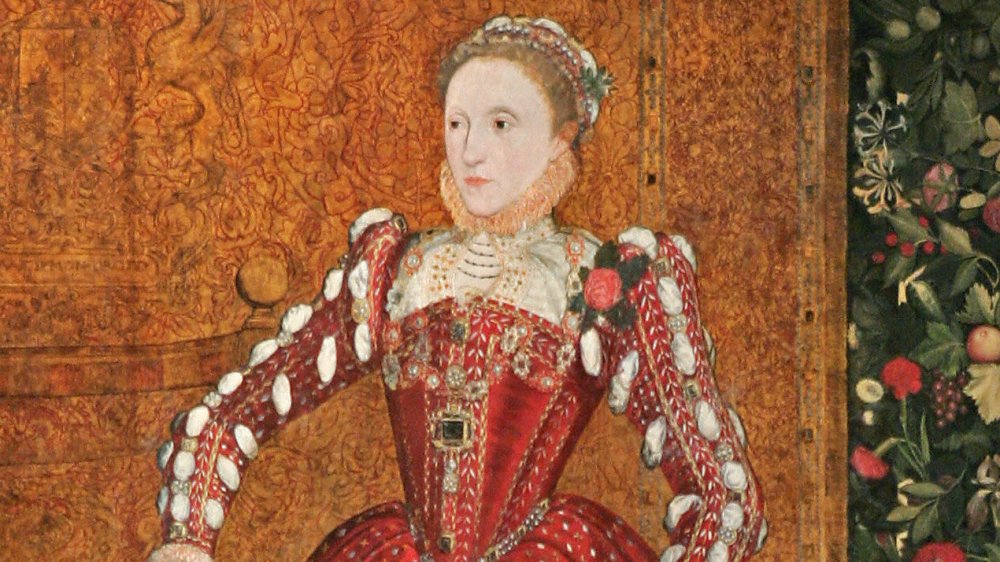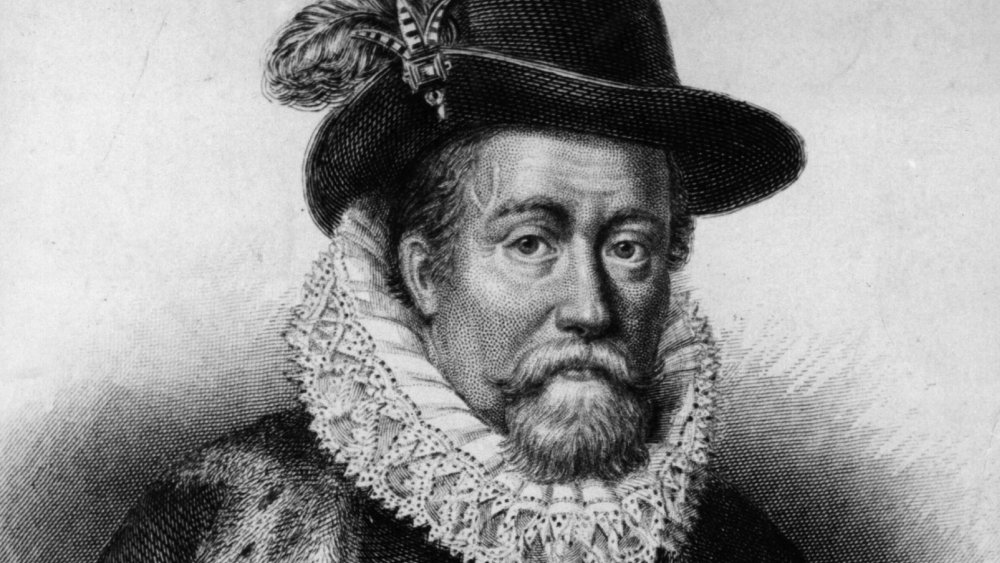The Reason Queen Elizabeth I Refused To Name An Heir
Nobody lives forever. Not even monarchs, although England's Queen Elizabeth II seems to be making a decent run at it. Monarchies being what they are, provisions must be made for who takes over when the present occupant of the throne kicks the royal bucket. Forget elections. It's no secret that the issue of a male, well, issue, drove an awful lot of Henry VIII's poorer life choices. The common wisdom those days was that you needed not only an heir, but a spare — just in case somebody decides to pull an Edward VIII-style abdication, or worse.
The whole megillah gets infinitely more complicated if the monarch in question didn't marry, and had, as part of her public image, the title "Virgin Queen," according to Britannica. So it was with Elizabeth I of England, daughter of the aforementioned Henry and his second wife, Anne Boleyn ... for whom, you probably remember, he threw over his first wife, Catherine of Aragon, precisely because she couldn't produce a male heir, according to History, let alone a spare. Which was totally her fault and not at all his. Totally.
Elizabeth I played a clever gambit
Spoiler: Elizabeth was the last Tudor monarch. No photographs, of course, and portraiture was kind of subjective, but still, given the standards of the times, she must have been a catch. Nonetheless, Elizabeth reigned for over 40 years, never married, and was childless.
Childbirth in those days was inherently dangerous for a woman, never mind the difficulty of choosing an appropriate spouse, and according to the Independent, Elizabeth was probably deterred by the fact that multiple family members had died giving birth. She also knew that as soon as she named an heir outright, intrigue was bound to happen. She had been named the heir during the reign of her sister, Mary. She had survived that, but it was by no means a guarantee that she would live to rule. What if the chosen one decided to step up the timeline?
Instead, Elizabeth played a canny, potentially dangerous, gambit: She maintained a relationship with James, son of Mary, Queen of Scots. Sure, Elizabeth had condemned James' mother to death, according to History ... but details, details. In any case, the U.K.'s Institute of Historical Research says that she carefully hinted in letters that James might succeed her, never stating it outright, and requiring certain terms be met. She also made sure he was secure financially, through a pension she provided. So, through a plot of yes, no, maybe so, Elizabeth didn't name an heir, while still lining up James as her successor.

